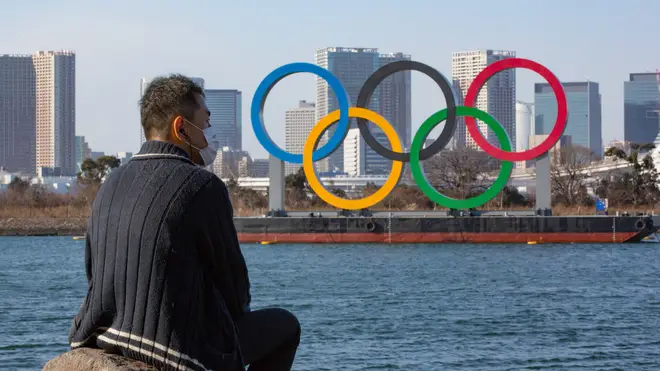
Nick Abbot 10pm - 12am
8 July 2021, 14:25 | Updated: 8 July 2021, 20:59

This year's Tokyo Olympics will go ahead without spectators after a rise in coronavirus infections in Japan, its organisers have announced.
It comes after the Japanese government placed the capital in a state of emergency that would last through the Games.
Seiko Hashimoto, president of this year's event, said the decision was "regrettable" and apologised to anybody who had purchased tickets.
At a meeting with experts on Thursday morning, ministerial officials proposed a plan to issue a state of emergency in Tokyo from next Monday to 22 August due to rising Covid-19 cases.
The Summer Olympics, already delayed a year by the pandemic, begin on 23 July and will finish on 8 August.
Read more: Japan to declare state of emergency as Olympic torch relay cancelled
Read more: Laurel Hubbard - first transgender athlete to compete at Olympics

Tokyo Olympics to go ahead without spectators due to Covid surge
Foreign spectators had already been barred from the event, but the planned six-week state of emergency has also ended the chances of a local audience.
It has already been announced that the Olympic torch relay in the city will be scrapped over health concerns, with flame lighting ceremonies being streamed online instead.
Coronavirus cases in Tokyo have hit a two-month high, a fortnight before the start of the competition.
The city is currently under less-stringent measures that focus on shortened hours for bars and restaurants but have proven less effective at slowing the spread of the coronavirus.
Read more: Sky Brown - team GB's youngest ever summer Olympian confirmed
Read more: Sha’Carri Richardson to miss sprint event after positive cannabis test

IDS: Boycott Winter Olympics to shine light on Chinese abuses
Its upcoming emergency will be the fourth for the capital since the pandemic began and is a last-minute change of plan made late on Wednesday after a meeting with experts who warned strongly against the government's soft approach.
Tokyo reported 920 new cases on Wednesday, up from 714 last week and its highest since 1,010 on May 13.
The figure is in line with experts' earlier estimate that daily cases in Tokyo could hit 1,000 before the Games and could spike into thousands in August.
Kazuhiro Tateta, a Toho University infectious diseases expert, noted an earlier state of emergency in the spring came too late to prevent hospitals in Osaka from overflowing with patients and said another delay should not be allowed.

Tom Tugendhat MP discusses idea of boycotting Beijing Winter Olympics
Ryuji Wakita, director-general of the National Institute of Infectious Diseases, noted that two-thirds of Japan's cases are from the Tokyo region and "our concern is the spread of the infections to neighbouring areas".
Experts also noted cases among younger, unvaccinated people are rising as Japan's inoculation drive loses steam due to supply uncertainty.
Just 15 per cent of Japanese are fully vaccinated, low compared to 47.4 per cent in the United States and almost 50 per cent in Britain.
Nationwide, Japan has had about 810,000 infections and nearly 14,900 deaths.